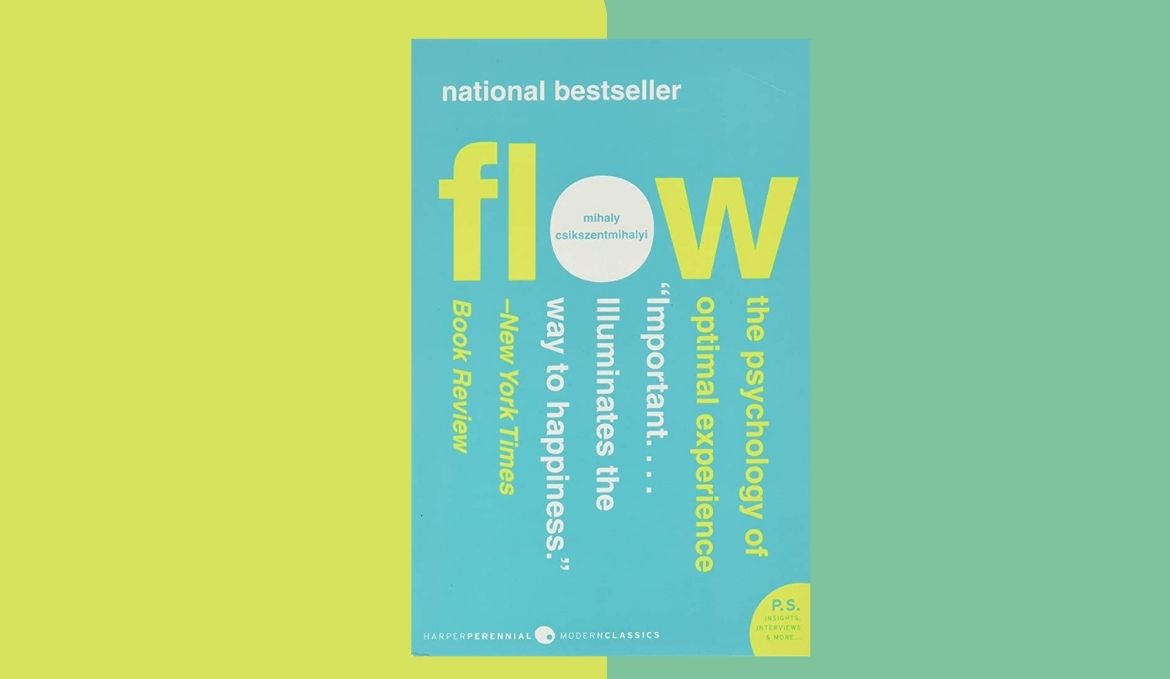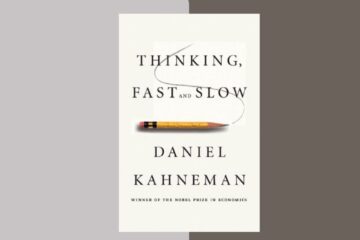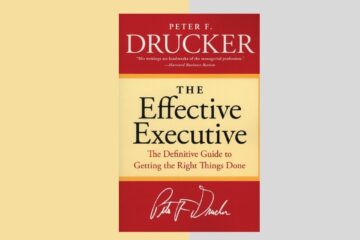Flow: The Psychology of Optimal Experience is a book written by Mihaly Csikszentmihalyi, a psychologist who is renowned for his work on the concept of flow. He investigates the concept of optimal experience and the ways in which it can enhance happiness, creativity, and productivity in this book. “Happiness Revisited,” the title of the book’s first chapter, provides an overview of the causes of discontent, the barriers of culture, and the routes to liberation.
The book “Flow” by Csikszentmihalyi emphasizes the significance of finding flow in all aspects of life, including interactions with others. Engaging in activities that challenge us and encourage growth, whether with family, friends, or the wider community, can give us a sense of enjoyment and fulfillment. We can have a high quality of life and an optimal experience by striking a balance between solitude and social interaction.
1st Chapter: Happiness Revisited
Csikszentmihalyi looks at the causes of discontentment, the barriers of culture, and the routes to liberation in the first chapter of Flow. He contends that individuals are discontent since they are detached from their encounters and that the safeguards of culture keep them from recovering those encounters. He suggests that individuals can achieve true happiness and optimal experience by removing these barriers and reclaiming their experiences.
The Roots of Discontent
Csikszentmihalyi says that the way people think about happiness is where discontent comes from. He argues that people have been conditioned to believe that external factors like wealth, status, and power can bring about happiness. He suggests that this approach to happiness is erroneous and that the only way to truly feel happy is to experience flow.
The Shields of Culture
Csikszentmihalyi refers to these social structures as the shields of culture, which prevent individuals from experiencing flow. He proposes that these safeguards are made by the media, instruction, and religion, and that they keep individuals from investigating their own encounters and tracking down obvious bliss. He argues that people can reclaim their experiences and experience happiness through flow by tearing down these barriers.
Reclaiming Experience
Csikszentmihalyi contends that the way to finding bliss is to recover one’s encounters. He suggests that people should pay more attention to the things that truly make them happy and become more aware of their experiences. He argues that this necessitates a shift in mindset, from a focus on the outside to one on the inside. People can experience happiness through flow by reclaiming their experiences.
Paths of Liberation
The ways of freedom, as per Csikszentmihalyi, are the manners by which individuals can separate the safeguards of culture and recover their encounters. He suggests that education, religion, and the arts are all options for the liberation. He argues that people can break through the barriers of culture and attain happiness through the experience of flow by exploring these paths.
2nd Chapter: The Anatomy of Consciousness
The second part of Flow composed by Mihaly Csikszentmihalyi is named “The Anatomy of Consciousness.” In this section, Csikszentmihalyi investigates the restrictions of cognizance, the job of consideration as clairvoyant energy, and the significance of entering the self to accomplish an ideal experience. He likewise examines how intricacy and the development of oneself assume an essential part in the experience of flow.
The Limits of Consciousness
Csikszentmihalyi contends that the human psyche has a restricted limit with regards to handling data. He recommends that cognizance resembles a bottleneck that confines how much data that can be handled at some random time. He contends that this impediment makes it challenging for individuals to accomplish ideal encounters since they can’t completely draw in their environmental elements.
Attention as Psychic Energy
As indicated by Csikszentmihalyi, consideration is the way to beating the constraints of awareness. He recommends that consideration is a type of mystic energy that can be coordinated toward various things. He contends that by guiding one’s consideration towards something, it is feasible to conquer the limits of awareness and accomplish ideal experience.
Enter the Self
To accomplish the ideal experience, Csikszentmihalyi contends that entering the self is vital. He proposes that by centering internally and becoming mindful of one’s own considerations and sentiments, accomplishing a condition of flow is conceivable. He contends that this requires a specific degree of mindfulness and that main through this mindfulness individuals can genuinely draw in their environmental elements.
Complexity and the Growth of the Self
Csikszentmihalyi contends that intricacy is critical to calculating the experience of flow. He recommends that when individuals have participated in complex exercises that challenge their abilities, they are bound to accomplish a condition of flow. He likewise proposes that the development of oneself is firmly connected to intricacy. He contends that by participating in complex exercises, individuals can grow their healthy identity and accomplish a more noteworthy feeling of satisfaction.
3rd Chapter: Enjoyment and the Quality of Life
Mihaly Csikszentmihalyi delves into the concept of enjoyment and its connection to quality of life in the third chapter of his book Flow. He differentiates between pleasure and enjoyment, discusses the various aspects of enjoyment, and introduces the autotelic experience concept.
Pleasure and Enjoyment
Csikszentmihalyi distinguishes between pleasure and enjoyment as two distinct experiences. When basic needs or desires are met, pleasure is a brief feeling of happiness. Satisfaction, then again, is a more mind-boggling and enduring experience that emerges from participating in exercises that require expertise and challenge. He contends that while joy is significant for a wonderful life, happiness eventually prompts a greater of life.
The Elements of Pleasure
According to Csikszentmihalyi, there are three essential aspects of pleasure: association, control, and the augmentation of oneself. The complete immersion in an activity to the point where one loses track of time and self-consciousness is referred to as involvement. The feeling of mastery and agency that comes from successfully completing a challenging task is referred to as control. The expansion of oneself alludes to the sensation of turning out to be more than one’s conventional self while participating in an action.
The Autotelic Experience
According to Csikszentmihalyi, the autotelic experience is the ultimate expression of enjoyment. It’s the state of completely immersing oneself in an activity without regard to any potential benefits or rewards from outside sources. He argues that creativity and innovation are closely linked to the autotelic experience, which is a fundamental aspect of the human experience. Csikszentmihalyi also makes the observation that people who have the autotelic experience generally have a better quality of life.
4th Chapter: The Conditions of Flow
The fourth section of Flow: Mihaly Csikszentmihalyi investigates the conditions necessary for flow, a state of complete absorption, and optimal activity performance. He talks about activities that promote flow, how culture can help, the traits of an autotelic personality, and how important it is to surround oneself with “people of flow.”
Flow Activities
Csikszentmihalyi says that flow activities have clear goals, immediate feedback, and a balance between one’s own skills and the perceived challenges of the task. Most of the time, these activities are hard but not too hard, and they need your constant attention and effort. Instances of stream exercises incorporate stone climbing, playing music, and composing.
Culture and Flow
Csikszentmihalyi contends that culture significantly influences the flow of experiences. He says that people are more likely to participate in flow activities and experience flow in cultures where doing so is highly valued. On the other hand, people are less likely to experience flow in cultures where material wealth and external rewards are prioritized.
The Autotelic Personality
The autotelic personality has a propensity to go with the flow, even when there are no external rewards or incentives. According to Csikszentmihalyi, people who have an autotelic personality tend to be more self-motivated, self-directed, and open to new experiences. Additionally, they typically have a greater capacity for concentration and a stronger sense of control over their lives.
The People of Flow
Being in the company of “people of flow” can also help one feel more in flow. These are people who are dedicated to flow activities, have a similar passion for them, and can offer encouragement, advice, and support. According to Csikszentmihalyi, a sense of belonging and an improved flow experience can come from being a part of a community of people who share similar values.
5th Chapter: The Body in Flow
In the fifth section of Flow, Mihaly Csikszentmihalyi investigates the job of the body in encountering flow. He talks about the association between active work and flow, and how different tangible encounters, like development, music, and taste, can improve the experience of flow.
Higher, Faster, Stronger
Csikszentmihalyi takes note of that proactive tasks that require an elevated degree of expertise and exertion, like games, can frequently work with the experience of flow. These exercises commonly include clear objectives, quick input, and a harmony among challenge and expertise, making them ideal for accomplishing a condition of complete retention and ideal execution.
The Joys of Movement
Csikszentmihalyi stresses the significance of development in encountering flow. He takes note of that when participated in active work, people are frequently ready to accomplish a feeling of congruity and solidarity with their current circumstance. Development can likewise give a feeling of dominance and command over one’s body, which can be exceptionally fulfilling and add to the experience of flow.
The Flow of Music
Music is another tactile experience that can work with the experience of flow. Csikszentmihalyi noticed that music can draw in people on different levels, including profound, mental, and physical. While paying attention to music, people can turn out to be totally caught up in the experience, forgetting about time and accomplishing a feeling of solidarity with the music.
The Joys of Tasting
Csikszentmihalyi likewise investigates how the feeling of taste can add to the experience of flow. He noticed that taking part during the time spent preparing and tasting food can give a feeling of concentration, challenge, and prize. Furthermore, the social and social parts of food and feasting can give a feeling of association and having a place, which can upgrade the experience of flow.
6th Chapter: The Flow of Thought
In the 6th section of Flow, Mihaly Csikszentmihalyi investigates the idea of the “flow of thought,” which alludes to the experience of complete retention and commitment to mental exercises, for example, critical thinking, imagination, and learning.
The Mother of Science
Csikszentmihalyi takes note that the experience of flow is crucial for logical request and revelation. Researchers frequently experience flow when participating in examination and trial and error, as they can completely submerge themselves in the main concern and accomplish a feeling of solidarity with their work.
The Guidelines of the Rounds of the Brain
The experience of flow in mental exercises, for example, critical thinking and imagination are described by a bunch of decisions and conditions that are like those in different kinds of flow exercises. These incorporate clear objectives, prompt input, and harmony among challenges and expertise. At the point when these circumstances are met, people can accomplish a condition of complete retention and ideal execution in their psychological exercises.
The Play of Words
Csikszentmihalyi likewise talks about the job of language in encountering flow. The innovative utilization of language, like verse or narrating, can be profoundly fulfilling and work with the experience of flow. Moreover, captivating in discussions and discussions can give a feeling of challenge and prize, which can likewise add to the experience of flow.
The Delights of Science
Science is a field that frequently requires an elevated degree of expertise and exertion, and thusly, can be profoundly helpful for the experience of flow. Csikszentmihalyi noticed that the feeling of disclosure and accomplishment that accompanies logical requests can give serious areas of strength for remuneration and inspiration for researchers, which can add to the experience of flow.
The Test of Long lasting Learning
At last, Csikszentmihalyi underscores the significance of deep-rooted learning in encountering flow. Mastering new abilities and information can be testing, yet in addition, profoundly compensating when one can accomplish a feeling of dominance and control. The quest for deep-rooted learning can give a feeling of motivation and head throughout everyday life and can be an important wellspring of flow encounters.
7th Chapter: Work as Flow
Do you wind up continually taking a look at the clock, counting during the time for the rest of the normal working day? Do you feel like your occupation is an errand, a necessary evil, instead of something that brings you fulfillment and satisfaction? Provided that this is true, you might be passing up the advantages of flow, the condition of ideal experience depicted by clinician Mihaly Csikszentmihalyi in his book, “Flow: The Brain Science of Ideal Experience.”
In the seventh part of the book, Csikszentmihalyi investigates the idea of work as flow. He contends that work can be a wellspring of bliss and satisfaction, however, provided that specific circumstances are met. This is the very thing that you really want to be aware of.
Autotelic Workers
Csikszentmihalyi utilizes the expression “autotelic” to depict individuals who are inside-headed to work on something for the good of their own, instead of for outer prizes like cash or status. Autotelic laborers are the people who track down pleasure and satisfaction in their work, paying little mind to outside factors. They are completely participated in their undertakings and experience a feeling of flow consistently.
Autotelic Positions
Obviously, not all positions are similarly helpful for flow. Csikszentmihalyi noticed that positions that are high in the challenge yet low in ability can disappoint, while occupations that are high in expertise yet low in the challenge can exhaust. The ideal occupation is one that offers harmony between challenge and expertise, permitting the laborer to encounter flow consistently. This can be challenging to accomplish, however, it’s something that the two specialists and managers ought to take a stab at.
The Waste of Free Time
At long last, Csikszentmihalyi brings up that the manner in which we invest our free energy can likewise influence our capacity to encounter flow at work. Assuming we spend our nights and ends of the week participating in casual exercises like sitting in front of the television or perusing virtual entertainment, we might be draining our mystic energy and making it harder to take part in testing, satisfying work during the week. Then again, assuming that we invest our leisure time seeking dynamic, imaginative leisure activities or taking part in friendly exercises, we might be developing our clairvoyant energy and expanding our ability for flow.
8th Chapter: Enjoying Solitude and Other People
The part begins by recognizing the contention between being separated from everyone else and being with others. Many individuals find it trying to adjust their requirement for isolation with their craving for the social association. In any case, Csikszentmihalyi contends that we can figure out how to appreciate both and that doing fundamental for an ideal experience and a great life is as well.
The creator accentuates the significance of flow in friendly cooperation, similarly to in different parts of life. Being completely drawn in and drenched in friendly communications, whether it’s investing energy with family, companions, or the more extensive local area, can prompt a feeling of satisfaction and satisfaction. This flow state can be accomplished by tracking down exercises that challenge us and permit us to utilize our abilities, very much like in lone pursuits.
The author also explores the concept of flow in family relationships. Day-to-day life can be testing and upsetting, however, it can likewise be a wellspring of profound fulfillment and delight. Csikszentmihalyi underlines the significance of tracking down flow in everyday life by taking part in exercises that challenge us and advance development. This can prompt a more profound feeling of association and happiness in our family connections
Key Takeaways
The groundbreaking book Flow: The Psychology of Optimal Experience by Mihaly Csikszentmihalyi changed the way we think about contentment, creativity, and productivity. In this book, Csikszentmihalyi introduces the idea of “flow,” which he defines as a mental state in which we are totally absorbed in a task, energised and concentrated, and feel a sense of joy and fulfillment. Here are some of the book’s main lessons:
- When we are fully committed to a task, utilizing our abilities to the fullest extent possible, and feeling a sense of joy and fulfillment, we are said to be in flow.
- While pleasure is a passive state of delight, flow is not the same thing. Flow necessitates work, focus, and challenge.
- Flow can happen during any activity, including work and play as well as sports and music.
- A delicate balance between the task’s difficulty and our abilities is necessary for flow. We become bored and anxious when a task is too easy or too difficult.
- Clear objectives, rapid feedback, and a feeling of control over the job are necessary for flow.
- Flow is a path to a meaningful and fulfilling existence, but it is not a guarantee of happiness.
In conclusion, Flow is a fascinating book that provides important insights into the characteristics of the best experience and how we might foster them in our lives. We may improve our performance, creativity, and well-being as well as find more meaning and purpose in our lives by becoming aware of the factors that encourage flow.



